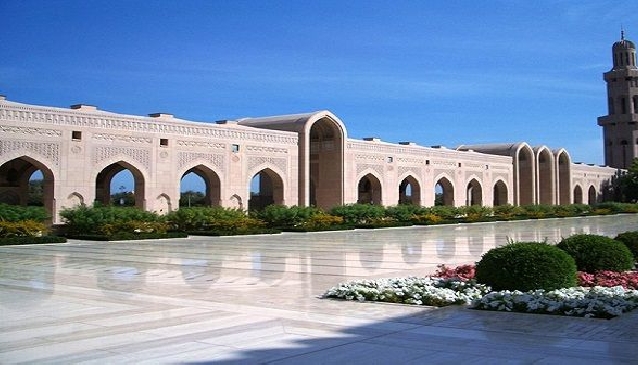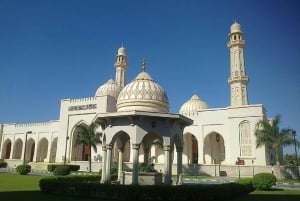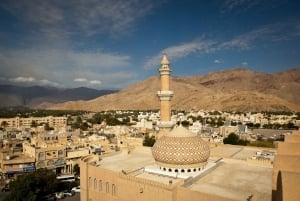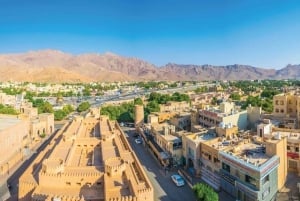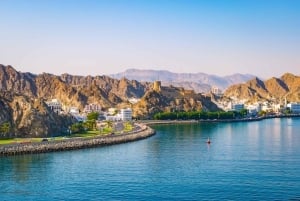Rules, Rituals & Righteousness in Oman
Ramadan is a period of intense spirituality in addition to fasting.
Book Top Experiences and Tours in Oman:
If youʻre booking your trip to Oman last minute, we have you covered. Below are some of the top tours and experiences!- Salalah: Private 4-Hour Sightseeing Tour
- Hajar Mountains: Private Day Trip from Muscat
- Khasab: Dolphin Watching Day Tour with Snorkeling & Lunch
- From Muscat: Nizwa and Oman's Historical Gems Tour
- Khasab: Half-Day Dhow Cruise with Dolphin Watching
The holy month of Ramadan occurs on the ninth month of the Islamic calendar and lasts for 29 or 30 days, depending on the sighting of the moon. Muslims believe Ramadan to be the month in which the first verses of the Qur’an were revealed to the prophet Muhammad (PBUH) and is undoubtedly the most important time in the Islamic calendar and one of the most important events in Oman.
It is a time for reflection, for appreciation and an opportunity to reform one’s character. In this regard, Muslims follow certain rules and ritual during Ramadan, the most notable being fasting: abstaining from food and drink during daylight hours.
Because of the cycles of the lunar calendar, the start of Ramadan moves back by 11 days each year, meaning that in 34 years a person would have fasted on every individual day of the year! Fasting is one of the five pillars of Islam and is practiced by all physically and mentally healthy individuals, from around age 12. Fasting is an opportunity for Muslims to practice self-control, cleanse the body and mind and focus on spiritual devotion, as well as to remind themselves of the suffering of the poor.
The fast is broken with a meal called iftar, usually consisting of dates and laban, before the Maghreb prayer is performed. This is followed then by the main meal of rice, meat and vegetables. Ramadan is an occasion for uniting the family and this is emphasised by the sharing of food from large communal dishes. After sleeping, some Muslims awake before the dawn prayer and eat a meal called sohour.
It is also a time for charitable actions such as donating food to those in need. Mawaed Rahman is carried out around the Muslim world, whereby poorer people are invited to eat with those who can spare it; sometimes organised in the form of huge public banquets, where simple fare is distributed to hundreds of hungry people.
Ramadan is a period of intense spirituality and in addition to fasting, Muslims are encouraged to read the entire Qur’an by means of prayers called Tarawih. These special prayers are held every night of Ramadan where a Juz (1/30 of the Quran) is recited. By this method the entire Quran would be read by the end of Ramadan.
So what does this mean for the non-Muslim visitor to during Ramadan? Above all, visitors are required to respect the rules of Ramadan, which means no eating, drinking, smoking or even chewing gum in public. Non-Muslims should dress more conservatively; impure thoughts are forbidden between dawn and dusk for Muslims during this time. Restaurants are not open during day, except for a small number of private dining areas in the larger hotels and alcohol is not served.
But don’t let these changes put you off visiting Oman during Ramadan, as it is a time of great celebration and joy among the Omanis, bringing with it a happy atmosphere just like any other religious or spiritual celebration brings to a place and its people.
The roads are thankfully clearer due to the shortened working hours (but beware of the mad rush just before iftar as drivers make a swift beeline home to break their fast! And shops stay open late into the night, which is a great excuse for after-work retail therapy!
Eid Al Fitr, a huge celebration and a time of generosity and joy, follows Ramadan. People don their finest attire, decorate their homes with lights, spend time visiting family and friends, and give out gifts. And naturally, there is more feasting to be had! After a month of restraint, there is an abundance of everything and gratitude is expressed for all that is had.


